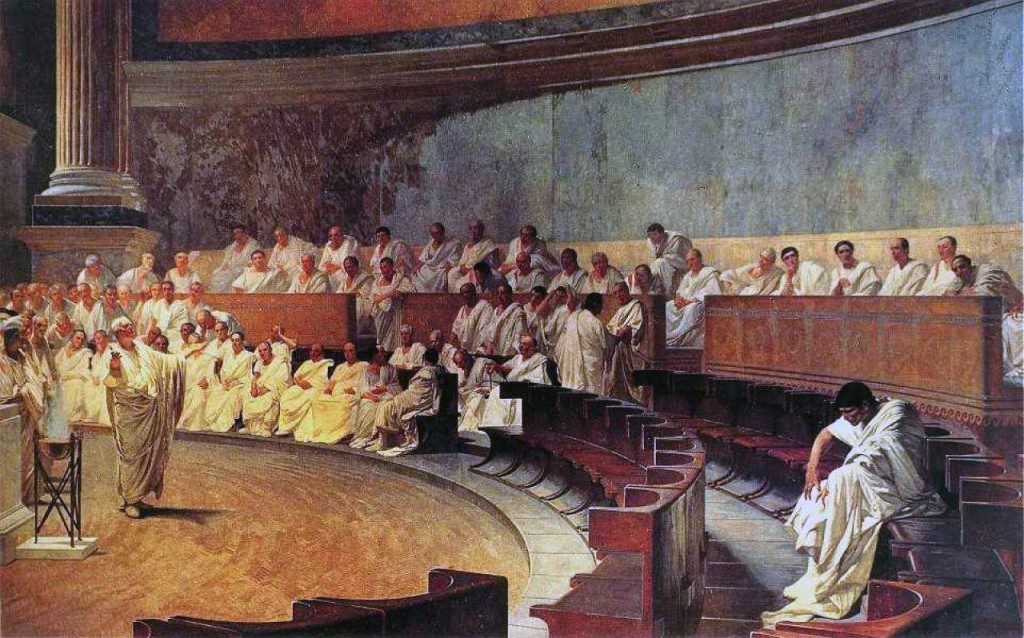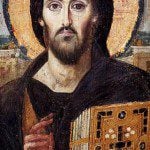
Here are some notes based upon Alister McGrath, Darwinism and the Divine: Evolutionary Thought and Natural Theology (Chichester: Wiley-Blackwell, 2011), 13-14:
Natural theology — that is, an attempt to reason from phenomena in the natural world (rather than from revelation) — is scarcely confined to the Christian tradition. In fact, it antedates Christianity and flourished among writers in the classical world.
In his De natura deorum (“On the nature of the gods”), for example, Marcus Tullius Cicero (106-45 BC) argued that it was very difficult to believe that the natural order visible on earth and in the heavens was the product of mere chance. He contended that natural providence was visible, among other things, in the complex design of both animal and human bodies, in nature’s care for humans and animals, and in the intricately interdependent character of the natural world. [Rather foreshadowing William Paley’s famous analogy of nature to a designed watch] Cicero suggested analogies between nature as a whole, on the one hand, and sundials and water-clocks, on the other. The appearance of design, he said, entailed the existence of a designer.
In his Olympic Oration, which was delivered at the Olympic Games in approximately AD 107, Dio Chrysostom (AD 40 – ca. AD 120) outlined his view that humans had developed their notion of divinity on the basis of reflections on the natural world. The sun, moon, and stars, he said, and the winds, woods, rivers, and forests on Earth itself, pointed to the existence of a deity or deities who created them and who could, to some extent and least, be known through consideration of them. Chrysostom saw the power of nature, as well as its beauty and its regular order, as an indicator of the divine.
Some classical writers were more cautious. Virgil’s Georgics, for instance, written in BC 29, although they take great pleasure in the richness, beauty, and diversity of nature, also note the dangers posed by wild beasts and the irresistible forces of nature that can disrupt agriculture and even take life. [A little more than a century later, the eruption of Vesuvius would supply a stunning illustration of the point.]
Moreover, the physiological and anatomical works of the great physician and philosopher Galen of Pergamon (AD 129 – AD 200 or AD 216) are permeated with the notion that every individual organ and part of the human body has been deliberately designed by divine power “as the best possible instrument for carrying out the functions of human existence.” (14)
See:
Cicero, De natura deorum II.34
Lloyd P. Gerson, God and Greek Philosophy: Studies in the Early History of Natural Theology (London: Routledge, 1994), 155-160.
Hans-Josef Klauck, “Nature, Art, and Thought: Dio Chrysostom and the Theologia Tripertita,” Journal of Religion 87 (2007): 333-254 (especially 341-350).
Hans Dieter Betz, “God Concept and Cultic Image: The Argument in Dio Chrysostom’s Oratio 12 (Olympikos),” Illinois Classical Studies 29 (2004): 131-142.
Pierre Boyancé, “La Religion des ‘Géorgiques’ à la lumière des travaux récents,” Aufstieg und Niedergang der Römischen Welt II.31.1 (1980): 549-573.
Christopher E. Cosans, “The Experimental Foundations of Galen’s Teleology,” Studies in History and Philosophy of Science 29 (1998): 63-80.
[For a certain small group of obsessive critics: This blog entry is partially made up of notes taken from book. These notes are notes. From a book. The book from which the notes were taken is identified. I make no claim to being an expert on classical natural theology. I do not pretend that my notes here represent original research on my part. I do not claim this as an original publication. I do not list blog entries among my publications. Part of this blog entry is made up of notes. From a book. I’ve closely paraphrased what that book says. I’m simply sharing my notes. I wasn’t trying to pretend that I was writing a new article of my own. I was simply sharing my notes. If you want to brand me as a plagiarist for doing so, you’re perfectly free to do that. But doing that seems more than a little bit silly to me.]












